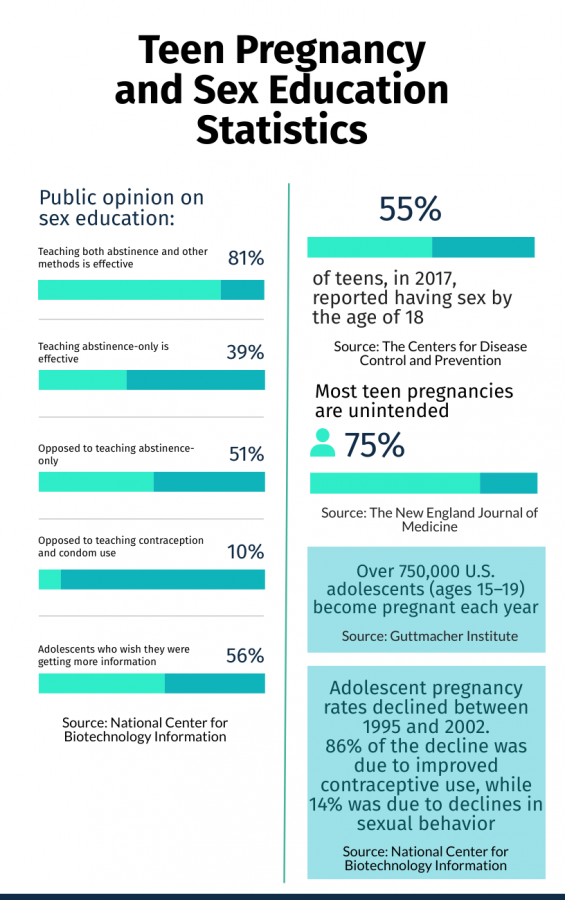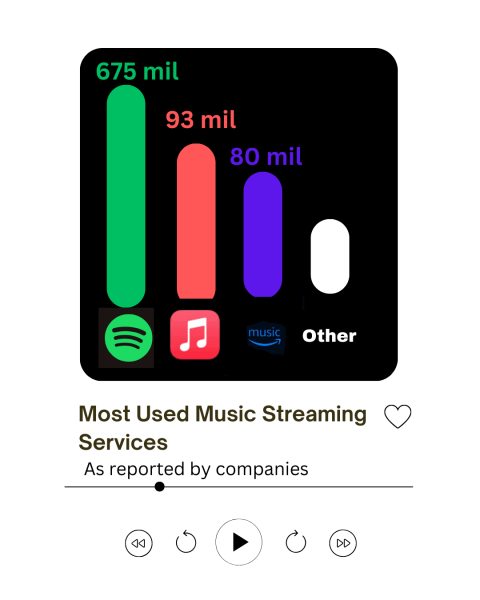Sex education needs to be more comprehensive
In order to graduate, every single student at Libertyville High School must take health class. This class, usually taken during freshman year, is designed to teach a multitude of topics on how to lead a healthy lifestyle, according to the LHS curriculum guide. An integral part of health class is sex education, where students are supposed to learn about birth control, consent, sexual assault and sex in general, as outlined in the Illinois State Board of Education (ISBE) standards.
Only we don’t.
During my health class, the words “sexual assault” were not mentioned once.
Patti Mascia, the supervisor of the physical welfare department, said, “[Teachers] might not use the words ‘sexual assault,’ but they definitely would have talked to you about making good decisions and treating others [well].”
I do remember learning about good decision-making and how to treat people, but there were no ways I could see the teacher even making a nod to how it applies to sexual assault. The unit mostly talked about bullying people and being an upstander in school.
While it is important to learn about making good decisions and treating people well, that isn’t all we should be learning regarding this very serious subject. The fact is, sexual assault is unfortunately still rather common. According to the Rape, Abuse, and Incest National Network, one in nine girls and one in 53 boys under the age of 18 have been sexually assaulted in their lives.
A study by the National Institutes of Health found that a “comprehensive sexuality education” before college is an effective strategy in reducing sexually motivated violence. Sexual assault is a heinous crime, and if high schools can be doing anything to prevent it from happening, they should.
When it comes to another key part of the curriculum, LHS does not technically have an abstinence-only policy, since artificial contraception is mentioned in class. But consider how, in my health class, the closest we came to learning about artificial methods of birth control was during our final project, where we made a brochure about abstinence and were required to include a minuscule section on alternative contraceptives. I was only actively taught abstinence by the teacher and left to read about other forms of birth control for homework or for projects.
And that was all we ever learned about contraceptives; I know that we barely scratched the surface. There’s so much more essential knowledge to learn about birth control methods that health class hasn’t taught us.
The truth is, sex isn’t some foreign, unheard of concept to high schoolers. A CDC study found that 55% of teens under 18 have had sex. Ignoring it and making it seem like we’re never going to encounter it harms us more than anything.
As the numbers in the accompanying infographic show, declining adolescent pregnancy rates are due to an increased use of contraceptives, not because of lower rates of sexual activity. Schools need to recognize this and and teach students about contraceptives as opposed to trusting that they won’t have sex, which has been proven not to work.
I’d like to think that I know a good amount about birth control, but there’s simply no way of knowing. Our school, which is supposed to educate us, has left me with little to no knowledge, making some of us more likely to investigate ourselves, possibly using unreliable sources.
Imagine if this was the case in another class. Imagine if your math teacher told you that you wouldn’t actively go over a concept, which you would encounter in the real world, even though it’s an explicit standard. That wouldn’t remotely fly in math, so why should it be any different for health, another required course at LHS?
This has to change. Whether it be Libertyville requirements or state ones, the sexual education curriculum must be improved.
When students encounter sex, they should feel ready and know what to expect, not be scared and confused. There are many concerns associated with sex, but ignoring them won’t make them go away; in fact, they’ll be exacerbated.
In health class, we should be given a comprehensive education, which includes not only contraceptive methods and sexual assault, but also the mechanics of sex.
Ms. Mascia stated that LHS doesn’t begin to go over the mechanics of sex because it is neither required by the ISBE nor the nation, but learning about this is nearly as important as contraceptives and consent. It may be awkward to both teach and learn, but it’s necessary.
Arguably, health class is the most important class we take. No matter what field a student goes into, they will encounter problems similar to what they learn in health class, and that will be one of their main sources for solving it. Students will, most likely, encounter sex at some point in their lives, and they should have a complete education to turn to.











